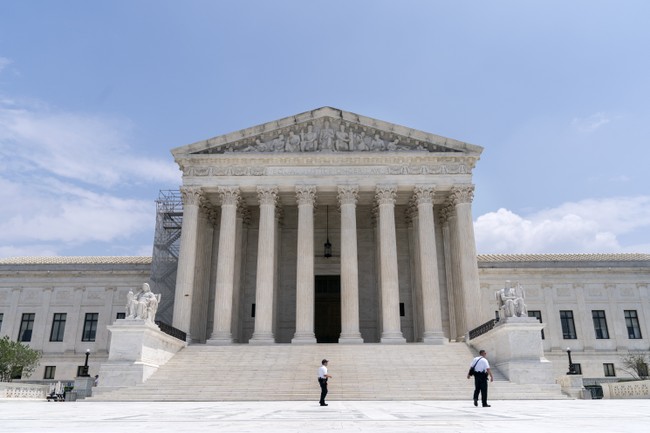
The U.S. Supreme Court handed down a victory for religious liberty on Thursday in a key and unanimous ruling in favor of a Catholic charity.
It is extremely difficult to find a subject on which all the SCOTUS justices agree, from hardcore constitutionalists Clarence Thomas and Sam Alito to radical leftists Sonia Sotomayor and Ketanji Brown Jackson, but one Catholic nonprofit managed to unite all the justices in a concurring opinion. Sotomayor wrote the unanimous opinion in Catholic Charities Bureau v. Wisconsin Labor and Industry Review Commission, which tried to force the nonprofit to pay certain taxes from which religious organizations are exempt in the state.
The Wisconsin state government violated the First Amendment freedom of religion guarantee, and the state’s Supreme Court was wrong to have ruled previously that Catholic Charities Bureau did not “operate primarily for religious purposes,” the U.S. Supreme Court ruled, per Sotomayor’s opinion. The justice wrote:
Wisconsin law exempts certain religious organizations from paying un-employment compensation taxes. The relevant statute exempts non-profit organizations “operated primarily for religious purposes” and “operated, supervised, controlled, or principally supported by a church or convention or association of churches.” Wis. Stat. §108.02(15)(h)(2). Petitioners, Catholic Charities Bureau, Inc., and four of its subentities, sought this exemption as organizations controlled by the Roman Catholic Diocese of Superior, Wisconsin.
Sotomayor opined that the Wisconsin state Supreme Court violated the constitutional right to freedom of religion.
Read Also: Tiananmen Square Anniversary: Chinese-American Warns U.S. to Protect Gun Rights
She explained the Court’s interpretation of the First Amendment in this case:
The First Amendment mandates government neutrality between religions and subjects any state-sponsored denominational preference to strict scrutiny. The Wisconsin Supreme Court’s interpretation of §108.02(15)(h)(2) imposes a denominational preference by differentiating between religions based on theological lines. Petitioners’ eligibility for the exemption ultimately turns on inherently religious choices (namely, whether to proselytize or serve only co-religionists in the course of charitable work), not “‘secular criteria’ ” that “happen to have a ‘disparate impact’ upon different religious organizations.”
Religious freedom must be defended. As we have seen in recent years, Christian hospitals, schools, businesses, and churches have been vilified, sued, and attacked numerous times by radical leftists for various reasons.
Biden administration officials, including old Joe himself, sued and harassed Catholic nuns over their opposition to contraception. Kamala Harris said she didn’t believe in any religious exemptions for abortion. The Biden administration tried to pressure Christian doctors into doing transgender operations. Radical abortion activists have attacked dozens of churches since Roe was overturned. The threat to religious liberty is real, and at least in this new decision, the Supreme Court came down on the right side of the issue.
Please support PJ Media’s conservative reporting on court rulings and constitutional rights. Join PJ Media VIP and use the promo code FIGHT to get 60% off your VIP membership.












